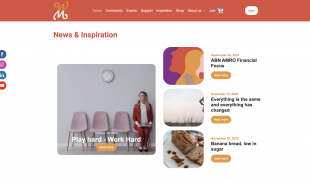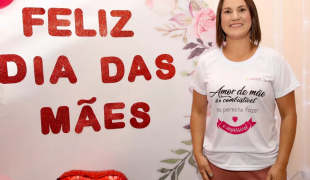- 4752
- 403
- 18
- 16
- 0
- Help Ukraine
About the solution
In Nevada, USA, a Ballroom has a dance class specifically designed for elderly people with dementia. The “Dance With Me” program is the result of a partnership between The Ballroom of Reno and the Dementia Friendly Washoe County and focuses on engaging “people living with early onset dementia and their caregivers with the joy of dance, as well as helping them fight the effects of dementia”. The dance class took place once a week and was free to all participants.
June Crouch, a representative from the Ballroom, explains that “All of this improves the learning in your brain and it helps to grow those new neural pathways”.
Donna Brown, one of the students in the class, attends with her husband Ron who suffers from Alzheimer’s. She says the benefits are undeniable: “It changes everyone’s personality. Everyone is very subdued when they come in, and the minute the music starts, everyone is happy. Everyone is having a good time. So it’s like you just put an hour of the disease behind.”
Desiree Reid, one of the ballroom instructors, says that the dance class has also been an important tool in helping to bring the seniors out of isolation, because physical touch “It’s how we relate. It’s why a hug feels good. So we are able to use our hands and connect with people.”
Read more: https://pop.inquirer.net/86635/dance-class-brings-elderly-with-dementia-...
More info: https://www.theballroomofreno.org/single-post/2020/01/30/dance-with-me-t...
这些解决方案不应包括使用药物,化学品或生物制品(包括食品);创伤性设备;冒犯性的,商业或内在危险的内容。该解决方案未经医学验证。请谨慎进行!如果您有任何疑问,请咨询健康专家。
DISCLAIMER: This story was written by someone who is not the author of the solution, therefore please be advised that, although it was written with the utmost respect for the innovation and the innovator, there can be some incorrect statements. If you find any errors please contact the patient Innovation team via info@patient-innovation.com
-
-
369
-
0
-
3997

Cláudia Arantes, a palliative care doctor, created the Casa do Cuidar platform that cares for patients facing terminal illnesses.
CAREGIVING
Social interaction
Blood Pressure Disorders
Website
In Person service
Online service
Book/Comic
Managing pain
Enhancing health literacy
Promoting self-management
Building Supportive Community Relationships
Promoting inclusivity and social integration
Enhancing Mental Health
Preventing (Vaccination, Protection, Falls, Research/Mapping)
Raise awareness
Caregiving Support
Child and Adolescent Psychiatry
Dermatology
General and Family Medicine
Internal Medicine
Medical Oncology
Pediatrics
Psychiatry
Vascular Surgery
Brazil
-
-
-
279
-
0
-
2803

Astrid and Marianne created platform Widows & Widowers - to give strength and support after both becoming widows.
COMMUNICATION: Communicating, whether by speaking, listening, or other means
CAREGIVING
SLEEP FUNCTION: Resting
Social interaction
Depressive Disorders (Major Depression, Childhood Depression, Postpartum Depression)
Website
In Person service
Promoting self-management
Promoting inclusivity and social integration
Enhancing Mental Health
Preventing (Vaccination, Protection, Falls, Research/Mapping)
Raise awareness
Caregiving Support
General and Family Medicine
Psychiatry
Netherlands
-
-
-
381
-
0
-
4099

After losing son to rare disease, woman creates project to help mothers with children with special needs
CAREGIVING
COMMUNICATION: Communicating, whether by speaking, listening, or other means
Social interaction
Neuromuscular Disorders
Strategy/Tip
Social Media
Tremors
Muscle cramps or spasms
Stiffness or rigidity (difficulty moving)
Paralysis of the legs and lower body
Muscle weakness
Loss of balance
Trouble with fine motor skills (e.g., writing, buttoning clothes)
Numbness or tingling in the extremities
Twitching or involuntary movements (myoclonus)
Seizures
Enhancing health literacy
Building Supportive Community Relationships
Promoting inclusivity and social integration
Enhancing Mental Health
Preventing (Vaccination, Protection, Falls, Research/Mapping)
Raise awareness
Caregiving Support
General and Family Medicine
Neurology
Pediatrics
Psychiatry
Brazil
-
 zh
zh